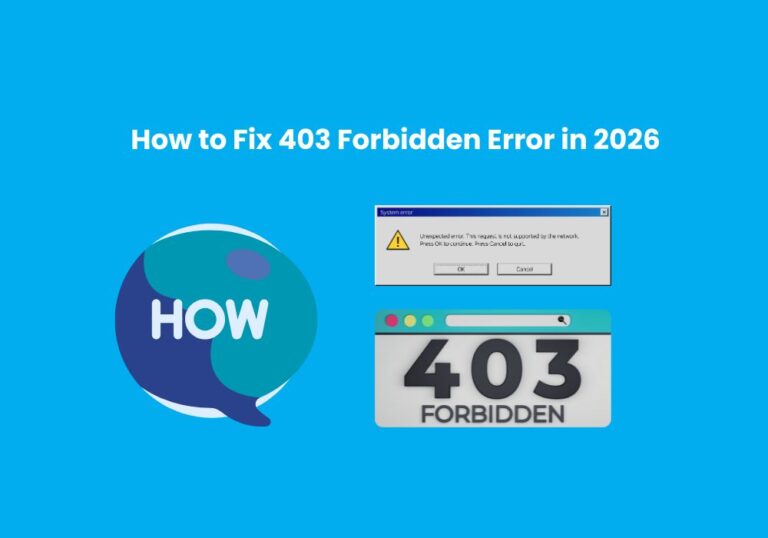FlyingPress vs WP Rocket: The Ultimate WordPress Caching Plugin Comparison
In the modern digital era, website speed is more crucial than ever. A fast website not only enhances user experience but also boosts search engine rankings, conversion rates, and overall site performance. When it comes to optimizing WordPress websites, caching plugins play a pivotal role. Two of the most popular options today are FlyingPress and WP Rocket. Both of these plugins offer comprehensive performance enhancements, but each comes with its strengths.
In this article, we’ll dive deep into the features, performance, pricing, ease of use, and customer support of FlyingPress and WP Rocket to help you decide which is the best WordPress caching plugin for your website.
If you want your website security recovered read our previous blog post How to Install a WordPress Plugin, which can help you.
Importance of Caching Plugins in Website Performance
Before diving into the comparison, it’s important to understand the significance of caching plugins. A caching plugin generates static versions of your website’s dynamic content. This drastically reduces server load time and enhances your website’s speed. For WordPress sites, where dynamic content can be resource-intensive, using a caching plugin is essential for maintaining optimal performance.
With that in mind, let’s explore the core features of both Flyingpress Vs Wp Rocket.
FlyingPress: An Overview
FlyingPress is a relatively new player in the world of caching plugins but has quickly gained traction due to its efficiency and simplicity. Designed to enhance website speed with minimal effort, it appeals to developers and site owners looking for a lightweight yet powerful solution.
Key Features of FlyingPress
- Efficient Caching: FlyingPress offers advanced page caching that significantly reduces load times.
- Lazy Loading: Automatically delays the loading of images and videos, ensuring faster initial load times.
- Minification and Compression: It minimizes the size of CSS, JavaScript, and HTML files, leading to quicker site performance.
- CDN Integration: Seamlessly integrates with Content Delivery Networks (CDNs), allowing static files to be served from the nearest server.
- Cache Preloading: Ensures that your site’s cache is always ready and that visitors experience fast load times.
- Image Optimization: Automatically compresses and converts images into modern formats like WebP for enhanced site speed.
FlyingPress stands out for its lightweight design, which makes it perfect for users focused on improving speed without dealing with complicated configurations.
WP Rocket: An Overview
WP Rocket is a premium caching plugin that has been around for several years. It is highly regarded for its user-friendly interface and comprehensive optimization features. WP Rocket is particularly popular among WordPress users who want to improve website performance without diving deep into technical details.
Key Features of WP Rocket
- Page Caching: Provides efficient caching to ensure fast page load times.
- File Optimization: WP Rocket minimizes and concatenates HTML, CSS, and JavaScript files to reduce their sizes and enhance load speed.
- Lazy Loading: Similar to FlyingPress, WP Rocket delays the loading of images and iframes to boost performance.
- Cache Preloading: Preloads caches for instant user access.
- CDN Integration: Easily integrates with CDNs, speeding up the delivery of static content.
- Database Optimization: WP Rocket also includes features to clean and optimize your WordPress database, improving overall site performance.
- WooCommerce Compatibility: Provides compatibility with WooCommerce, ensuring fast performance for eCommerce stores.
FlyingPress stands out for its lightweight design, which makes it perfect for users focused on improving speed without dealing with complicated configurations.
Performance Comparison
When it comes to performance, both FlyingPress and WP Rocket excel. Here’s a detailed comparison of their key performance attributes:
| Performance Aspect | FlyingPress | WP Rocket |
|---|---|---|
| Page Load Speed | Excellent | Excellent |
| File Size Reduction | Strong | Strong |
| Lazy Loading | Yes | Yes |
| Database Optimization | No | Yes |
| CDN Integration | Yes | Yes |
Verdict:
Both plugins deliver strong performance in terms of speed optimization, lazy loading, and file size reduction. However, WP Rocket holds a slight edge due to its built-in database optimization, which can enhance overall site performance for larger websites. If database optimization is a critical aspect of your site, WP Rocket may be the better choice.
Ease of Use: FlyingPress vs WP Rocket
FlyingPress
FlyingPress is known for its straightforward setup process. The interface is clean and designed with simplicity in mind. Even users with minimal technical experience can install and configure FlyingPress quickly without needing to dive into complex settings.
WP Rocket
WP Rocket is renowned for its one-click setup. It’s designed to be user-friendly from the start, and even novice users can enable key features without trouble. However, WP Rocket also provides more advanced settings for users who want greater control over their caching and optimization configurations.
Verdict:
If you’re a beginner looking for a hassle-free experience, WP Rocket is the easiest choice. However, FlyingPress offers simplicity without sacrificing the ability to customize settings for advanced users.
If you’re a beginner looking for a hassle-free experience, WP Rocket is the easiest choice. However, FlyingPress offers simplicity without sacrificing the ability to customize settings for advanced users.
Pricing: Which Plugin Offers Better Value?
When comparing these two plugins, pricing is another important factor to consider. Both offer premium solutions, but their pricing models differ slightly.
Pricing: Which Plugin Offers Better Value?
FlyingPress Pricing
FlyingPress offers a single-site license starting at $60 per year. The pricing increases with additional site licenses, making it more budget-friendly for small websites or those focused on performance rather than additional features like database optimization.
WP Rocket Pricing
WP Rocket starts at $59 per year for a single-site license. Although the base price is comparable to FlyingPress, WP Rocket includes more out-of-the-box features, such as database optimization and WooCommerce compatibility.
Verdict:
For users looking for a comprehensive optimization solution, WP Rocket offers more features at a slightly higher price point. However, if your primary concern is speed optimization without the need for database tools, FlyingPress might be the more cost-effective option.
Support and Updates: FlyingPress vs WP Rocket
FlyingPress Support
As a newer plugin, FlyingPress offers responsive customer support and regular updates. However, its community and resource base are still growing compared to more established plugins like WP Rocket.
WP Rocket Support
WP Rocket has a well-established reputation for excellent customer support and frequent updates. Additionally, its large user base means that there are extensive resources, guides, and tutorials available online.
Verdict:
While both plugins offer reliable support, WP Rocket has the advantage of a larger, more established support network and a proven track record of frequent updates.
Final Verdict: Flyingpress Vs Wp Rocket?
Choosing between FlyingPress and WP Rocket ultimately depends on your website’s specific needs.
- FlyingPress: If you’re looking for a lightweight, user-friendly caching plugin focused primarily on speed optimization, FlyingPress is an excellent choice.
- WP Rocket: If you need a more feature-rich solution that includes database optimization, WooCommerce support, and comprehensive caching features, WP Rocket is worth the higher price.
Both plugins offer impressive performance improvements, but WP Rocket serves as the better all-in-one solution, while FlyingPress is ideal for those who want a streamlined, speed-focused experience.
Conclusion
In conclusion, both FlyingPress and WP Rocket are outstanding caching plugins that can dramatically improve your WordPress website’s speed and performance. Your choice between the two should be based on your specific needs, budget, and the complexity of your site. Whether you choose FlyingPress for its simplicity or WP Rocket for its feature-rich toolkit, you’re making a sound investment in your website’s success.







